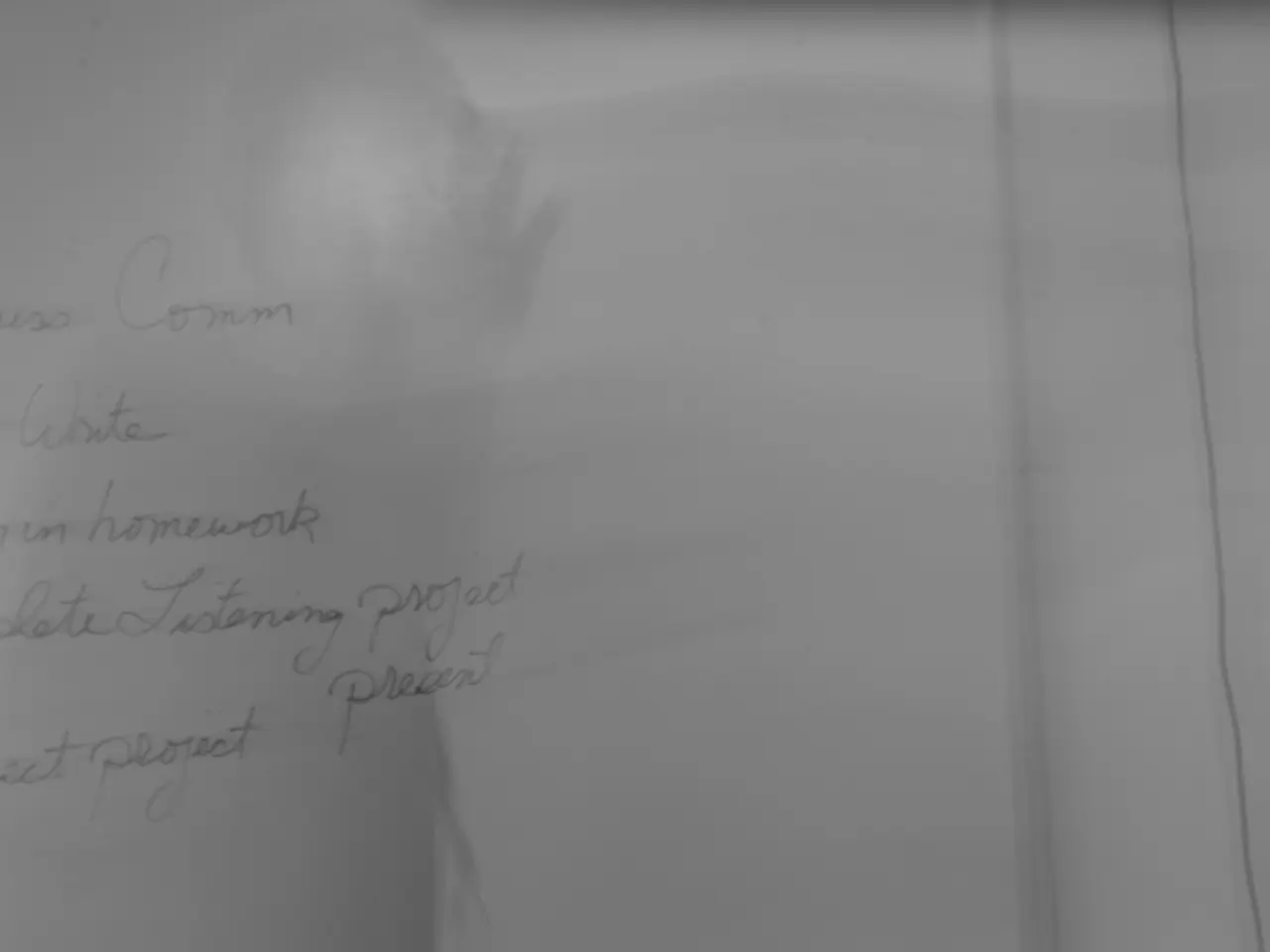Policy-imposed Uncertainty Leads to Eroded Trust | Sanjaya Baru's perspective
Fickle Finances: How US Bonds Fell Victim to Trump's Tariff Whims
The unpredictable dance of financial markets and US President Donald Trump continues, with the bond market offering a lesson in the price of whimsy. From the White House, Trump's familiar utterance, "I know all about it," seems to have taken a backseat, as the US government grapples with the outcomes of Trump's tariff policies and their impact on the bond market.
The Tariff Tango: A Messy Rumba for Financial Markets
The secretary's warning bells echoed when some Japanese began selling off American bonds. The sudden cues sent a shiver down Washington, DC, and to the man who famously boasted of global leaders eager to cater to his whims, introduced a sense of reticence. Trump's love affair with tariffs initially ignited with a bang, but eventually concluded with a soft whisper. While the grand spectacle may not have finished, the dancefloor's radiance has undeniably dimmed.
Amidst the encore, the ever-changing choreography of Trump's tariff policies has brought about more chaos than harmony within the US financial landscape. Be it the markets or the bond market, the uncertainty caused has left everyone second-guessing their moves.
An Unsettling Act: Trump's Policy Dance
The US bond market has nervously held on as it grapples with Trump's contradictory tariff decisions. With a 90-day tariff increase pause in place, a 10% across-the-board increase for all trading partners, and a staggering 145% tax on China, the market has experienced a sigh of temporary relief. However, the action-reaction dance of uncertain policy decisions continues to loom over the economic arena.
Leaders as Choreographers: Stability and Predictability
Elected officials are not dance instructors spinning a whimsical web of chaos but powerful statespersons, crafting an atmosphere of stability and predictability. Granted, some favor disruption over harmony. Disruption, nevertheless, tends to be a one-way street without a map, as demonstrated when Trump's unpredictable policy decisions created pandemonium in the international arena.
Checks and Balances: Creating Order in the Chaos
Established democracies, by design, have created checks and balances to mitigate potential damage wrought by erratic governance. This is done not only to provide a forum for diverse opinions but also to give all actors time for deliberation and calculation before implementing policies with unforeseen consequences. The US Constitution, for instance, mandates Congressional approval for major policy decisions.
Trump's bypassing of democratic institutions and dramatic announcements of poorly considered policy decisions, can impose substantial costs on the economy and on all stakeholders—firms and households alike. Uncertainty induced by such whimsical decision-making can debilitate market dynamics, making it hard for investors to pin down the best course of action.
Even in a market-based economy, market dynamics prove powerful, albeit begrudgingly. It's been suggested that the bond market may have played an unseen role in tempering Trump's antics, reining in his wild moves that could have further destabilized the financial landscape.
Yet, the streets of the United States were, and still are, a battlefield for alternative views. The political protests that sparked across cities started as demonstrations of opposition frustration but soon gained public recognition. Republicans too began to reconsider their stance when the growing public outrage found a foothold among Congress members.
As we witness the waning influence of certain global leaders, democratic institutions will continue to play a crucial role in maintaining equilibrium and preventing further instability. The world watches as the US government reels from the repercussions of Trump's questionable policy choices.
The author is an author, former newspaper editor, and an adviser to Prime Minister Manmohan Singh
Sources:[1] "Here's how Trump's tariffs have affected the U.S. economy" | Vox[2] "Tariff wars and financial markets: broad implications for asset prices, exchange rates, and trade" | IMF Working Paper[3] "Impact of Trump's Tariffs on the Bond Market" | Barron's[4] "Fed policy decisions are getting more complicated during Trump’s trade war" | CNBC[5] "The Bond Market's Love-Hate Relationship with Trump" | BloombergInsights:During Donald Trump's presidency, the bond market experienced significant turbulence due to the unpredictability of his trade policies and the resulting uncertainty for the markets. Tariff impositions and abrupt pauses or reversals had marked effects on the US stock and bond markets, as well as increasing concerns for the Federal Reserve about inflation and economic stability. The Federal Reserve Chair, Jerome Powell, emphasized the need for clarity on tariff impact before easing monetary policy. The bond market's reaction, including large fund outflows and volatile rate expectations, reflected a deep worry about the economic consequences of Trump's trade policy flip-flops.
- The dance between US financial markets and the Trump administration's tariff policies has encroached into other sectors, such as sports-betting, with the unpredictable nature of these policies causing uncertainty that complicates decision-making for sports bettors.
- As the US grapples with the consequences of Trump's tariff policies, a panel discussion on policy-and-legislation at a renowned political science university has focused on the impact of these policies on crime-and-justice, with some scholars arguing that the increased uncertainty can contribute to an environment of lawlessness.
- Amid the ongoing controversy over Trump's tariff policies, the general-news media has also noticed a surge of interest in less conventional sectors of news, such as sports, as fans seek refuge from the chaos and seek a sense of predictability and consistency. However, even in sports, the disruption of trade relations can have an impact – for instance, the uncertainty surrounding the import of high-tech athletic equipment may give an edge to countries with more stable trade relations.








